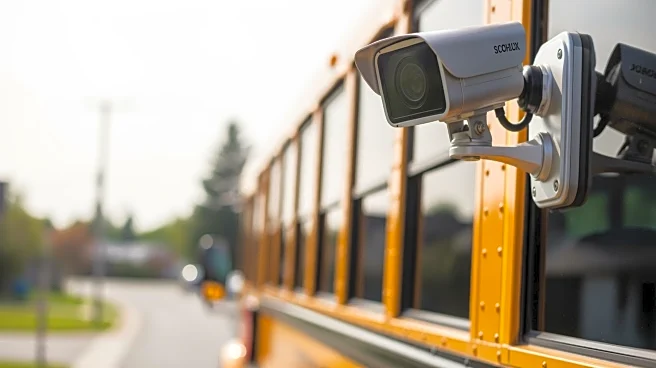What is the story about?
What's Happening?
A recent study led by the Yale School of Public Health has highlighted significant disparities in measles, mumps, and rubella (MMR) vaccination rates across Texas, particularly at the school level. The research, published in the Annals of Internal Medicine, reveals that while some counties report overall vaccination coverage near the 95% target necessary for measles elimination, school-specific rates can be alarmingly low. For instance, Gaines County, the epicenter of a recent measles outbreak, showed school-based vaccination rates as low as 46%. The outbreak, which began in January and was declared over in August, resulted in 762 cases, 99 hospitalizations, and two deaths. The study emphasizes the role of schools in spreading infectious diseases due to close contact among children and highlights the need for more granular data to identify vulnerable communities.
Why It's Important?
The findings underscore the critical need for maintaining high vaccination rates to prevent measles outbreaks, which can have severe health consequences. The study suggests that even a single measles case in a school with low vaccination coverage can trigger an outbreak. This situation is exacerbated by vaccine skepticism and social clustering within school communities, which can lead to localized pockets of low coverage. The research calls for improved public health measures, including combating vaccine misinformation and enhancing vaccine accessibility. The ability to opt out of vaccinations more easily in Texas further complicates efforts to achieve necessary coverage levels, posing a risk to public health.
What's Next?
The study advocates for the collection and sharing of more detailed vaccination data to better identify and address areas of low coverage. Public health officials may need to implement targeted interventions in schools and communities with low vaccination rates. Additionally, there may be increased efforts to counter vaccine misinformation and improve vaccine accessibility through school-based programs. As measles outbreaks continue in other parts of the country and the world, Texas may face further challenges in preventing new cases.















